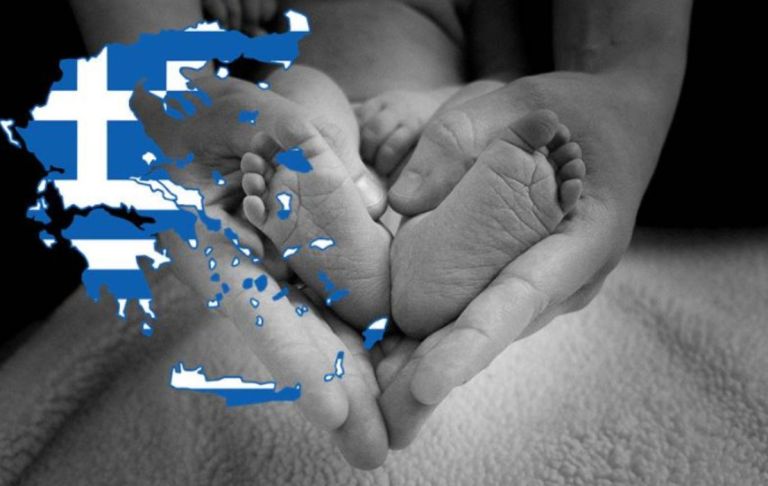Greece Is Growing Old: Population Shrinks by 500,000 in 13 Years

Πηγή Φωτογραφίας: pixabay//Greece Is Growing Old: Population Shrinks by 500,000 in 13 Years
Greece is now facing one of its most serious long-term challenges: a deep and ongoing demographic crisis. According to a new analysis by the Laboratory of Demographic and Social Analyses at the University of Thessaly, the country’s population has shrunk by nearly half a million people between 2011 and 2024.
Titled “Demographic Decline and Low Fertility in Today’s Greece: Demographic Inertia and Social Challenges”, the report — authored by Dr. Iphigenia Kokkali, Associate Professor and Director of the Laboratory — sheds light not only on declining birth rates, but also on the broader societal and policy factors driving Greece’s demographic downturn.
Births Collapse, Deaths Outnumber New Lives
In 2023, only 72,300 births were recorded in Greece — nearly half the annual average recorded between 1951 and 1970.
Since 2011, the country has consistently posted negative natural population balances (deaths minus births), compounded by negative migration balances in the aftermath of the financial crisis. As a result, the total population has declined by nearly 500,000 people in just over a decade.

Fertility Well Below Replacement Level
The country’s intergenerational fertility rate now hovers around 1.3–1.4 children per woman, far below the replacement level of 2.07. Moreover, approximately 1 in 5 women born around 1980 remain childless, highlighting not just a trend but a structural demographic deficit.
An Ageing Nation
Greece is one of the oldest countries in the EU:
- Nearly 23% of its population is aged 65 and above,
- In 2023, those over 65 outnumbered children under 14 by almost 1 million.
This demographic imbalance puts increasing pressure on healthcare, pensions, labour markets, and economic growth.
Migration Once Helped – But Not Anymore
Dr. Kokkali notes that population decline began in 2011, somewhat later than in other countries, due to the mass inflow of immigrants between 1991 and 2010, which contributed to a positive net migration balance of over 795,000 people.
This migration wave — mostly of young, working-age people — temporarily boosted fertility rates and slowed population ageing. But since the financial crisis, flows have reversed.
Between 2011 and 2021, Greece saw a renewed exodus, not only of returning migrants, but also of thousands of young, educated Greeks (ages 25–45) seeking better prospects abroad.
Why Are Young People Leaving? And Why Aren’t They Having Children?
The report stresses that low birth rates are not just a “demographic issue”, but deeply intertwined with structural societal challenges.
“The conditions of life in today’s Greece seem to drive young people either to emigrate or to avoid having children.”

Key reasons include:
- Mismatch between education and job opportunities
- Lack of meritocracy and career prospects
- Desire for better living standards and social tolerance abroad
- Housing insecurity and affordability issues
Family Formation Comes Late — If At All
Greece is seeing a rise in the average age of leaving the parental home, the age of marriage, and consequently, the age of first childbirth.
“In contrast to other EU countries, young Greek couples increasingly delay cohabitation, which statistically delays or prevents family formation altogether,” the report highlights.
Housing conditions are critical: high costs and low availability hinder family formation and reduce the likelihood of having children — especially the second or third.
Demographic Decline: A National Survival Issue
The study concludes with a warning: Greece’s demographic crisis is not just about numbers — it impacts social cohesion, economic resilience, the future of the welfare state, and even national defense.
Without coherent, long-term family, housing, and labour policies, the low fertility–high ageing trap will only worsen.
“The demographic issue must be treated as a top national priority — not as a technical anomaly, but as a question of societal and generational sustainability.”
Source: pagenews.gr
Διαβάστε όλες τις τελευταίες Ειδήσεις από την Ελλάδα και τον Κόσμο






Το σχόλιο σας